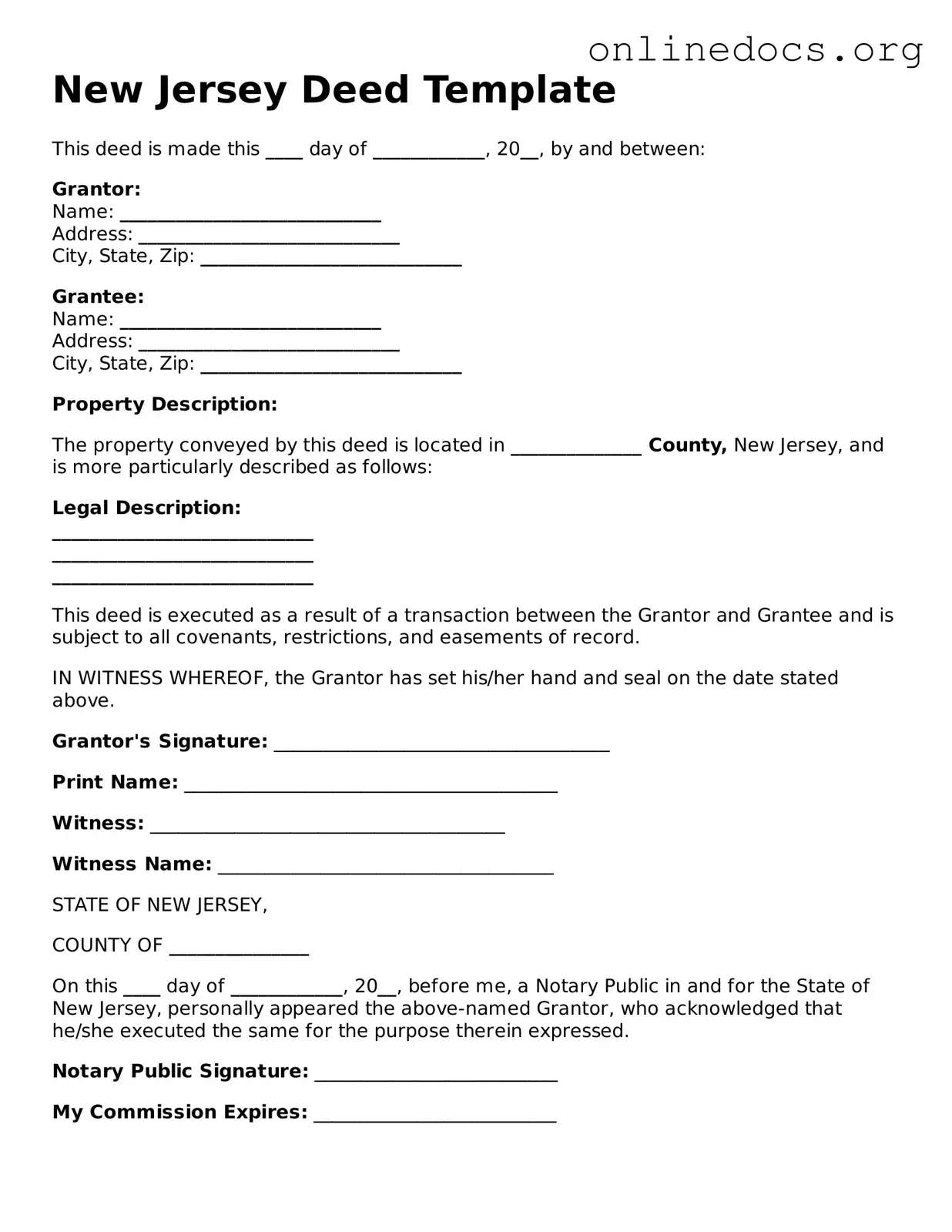The New Jersey Deed form shares similarities with the Quitclaim Deed. Both documents serve the purpose of transferring ownership of real property from one party to another. In a Quitclaim Deed, the grantor conveys whatever interest they may have in the property without making any guarantees about the title. This means that the recipient may receive the property with potential encumbrances or claims attached. The simplicity of the Quitclaim Deed makes it a popular choice for transactions between family members or in situations where the parties have a high level of trust.
Another document akin to the New Jersey Deed form is the Warranty Deed. Like the New Jersey Deed, the Warranty Deed is used to transfer property ownership. However, it provides a stronger level of protection for the grantee. The grantor in a Warranty Deed guarantees that they hold clear title to the property and will defend against any future claims. This assurance can be crucial for buyers who wish to ensure that they are acquiring a property free of liens or other legal issues.
The Bargain and Sale Deed is also comparable to the New Jersey Deed form. This type of deed conveys property without any warranties against encumbrances, similar to a Quitclaim Deed. However, it does imply that the grantor has some interest in the property. The Bargain and Sale Deed is often used in real estate transactions where the buyer is willing to accept some level of risk regarding the title, making it a common choice for foreclosures and tax sales.
Additionally, the Special Purpose Deed shares characteristics with the New Jersey Deed form. This type of deed is often used for specific situations, such as transferring property held in a trust or by a corporation. Like the New Jersey Deed, it facilitates the transfer of ownership, but it may also include specific language or requirements based on the unique circumstances surrounding the property. This adaptability allows for tailored solutions in various legal contexts.
The Grant Deed is another document that bears resemblance to the New Jersey Deed form. It is primarily used in certain states, including California, to transfer property. A Grant Deed guarantees that the property has not been sold to anyone else and that there are no undisclosed encumbrances. This assurance provides a level of protection for the grantee, similar to the warranties found in a Warranty Deed, thus ensuring a more secure transfer of ownership.
Understanding the various types of deeds, including the Bill of Sale, is crucial for anyone navigating property transactions in Texas. A Bill of Sale form can serve as a vital legal document that ensures clarity in ownership transfer, much like the protections offered through other deed types. For those seeking further information, resources such as legalformspdf.com can provide helpful templates and guidelines.
Lastly, the Trustee's Deed is similar to the New Jersey Deed form in that it is used to transfer property held in a trust. When a trustee sells or conveys property, they do so using a Trustee's Deed. This document confirms the authority of the trustee to act on behalf of the trust and ensures that the transfer complies with the terms of the trust agreement. While it serves a specific purpose, it shares the fundamental goal of transferring property ownership, much like the New Jersey Deed.
